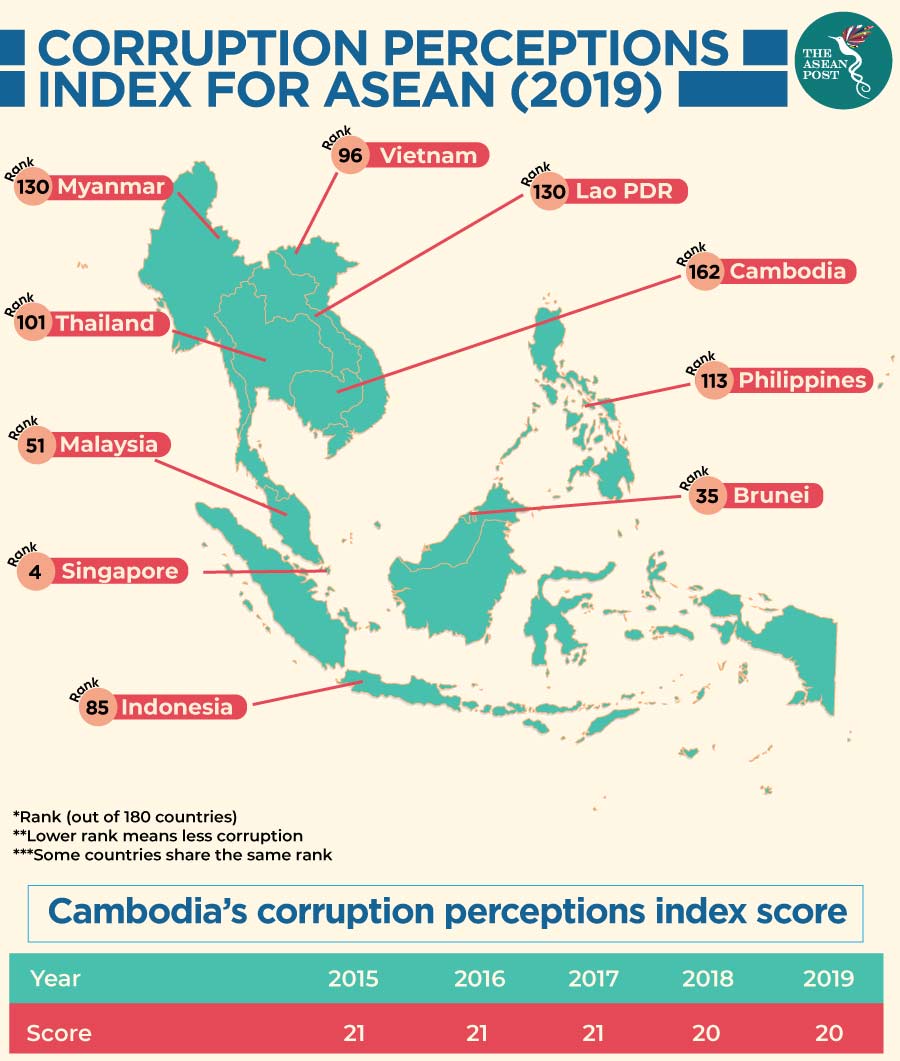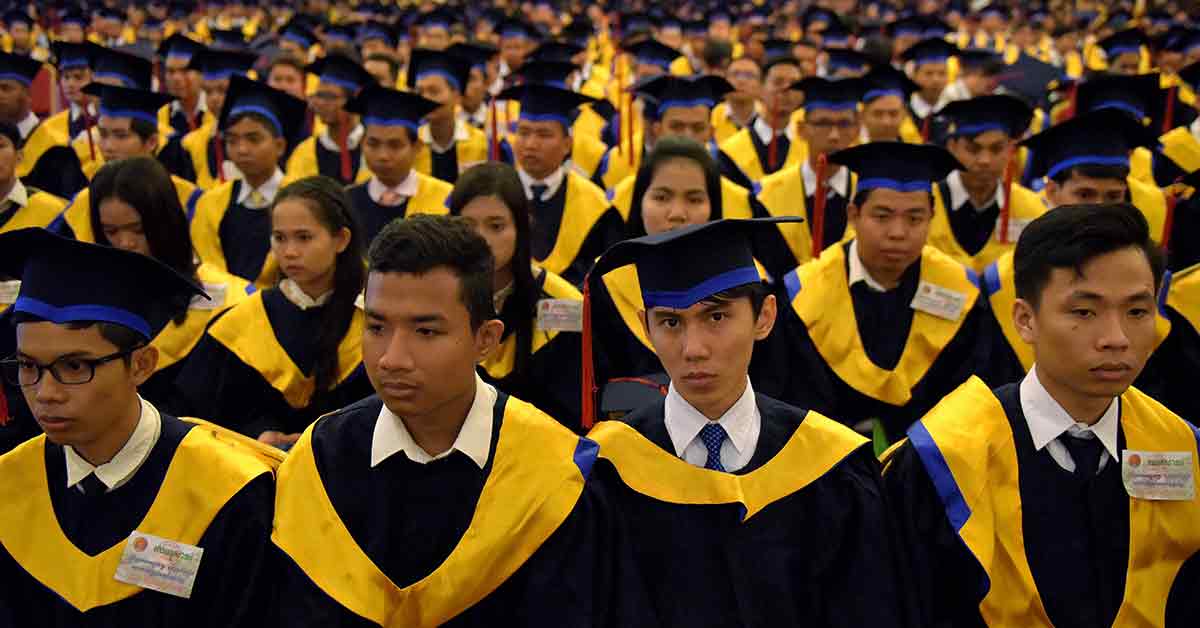Yesterday, the ASEAN Post published an article on allegations made by a Cambodian student regarding corruption in his school.
On 26 January, the student, Kong Bunrith, posted a video on Facebook which supposedly accused the country’s Ministry of Justice senior officials of taking bribes. Kong had claimed that some of his peers paid up to US$150,000 in bribes to secure passing grades.
The municipal court has since summoned him for questioning over accusations of public defamation, slander and incitement to discriminate. The date is set for this Friday, 14 February.
When interviewed, Kong told Cambodian daily The Phnom Penh Post, that the information he shared in his video came from sources who messaged him privately, adding that he expected he would share the information that was passed on and it would lead to a full investigation.
Yesterday, we touched on the fact that corruption has long been plaguing Cambodia’s education system and so a “full investigation” as mooted by Kong is not an unfounded call.
While some quarters, such as Cambodia’s Higher Education Association (HEA), have claimed that corruption has nearly been eradicated in the education system, it was also noted that not everyone is convinced. These included Ouk Chhayavy, president of the Cambodian Independent Teacher’s Association, and San Chey, executive director of the Affiliated Network for Social Accountability.
It would seem, in fact, that corruption continues to be a big issue in Cambodia.
According to Transparency International’s (TI) most recently released Corruption Perceptions Index 2019, Cambodia ranked the lowest compared to any other ASEAN country. Adding on to the fact, even globally, Cambodia ranked 162 in a rank that placed the last country, Somalia, at 180 – only 18 countries away.
To think that corruption may still exist in something as integral as the education system, is not too far a stretch of the imagination.

Defamation
Article 305 of the Cambodian Penal Code currently reads: “Defamation shall mean any allegation or charge made in bad faith which tends to injure the honour or reputation of a person or an institution.”
In August 2014, attorney at law, Connor Mullin, from law firm Akin Gump, noted that the definition of the law meant that an individual can be convicted of the crime even if his statements do not result in actual damages - a necessary element of the civil cause of action in countries like the United States (US).
In February 2016, the United Nations (UN) Human Rights Committee published its second periodic report of Cambodia. In that report, it noted that while the committee had recommended Cambodia consider decriminalising defamation, and despite an increase in the number of defamation cases since 2015, “no plan or even intention can be seen” from the government to implement the committee’s recommendation.
In December 2018, Human Rights Watch (HRW) claimed that the Cambodian government has cracked down on civil society groups using threats, violence, and “repressive laws” against any independent voices challenging the ruling party’s prerogatives.
“Cambodia’s judiciary, which is not independent of the ruling party, unjustly prosecutes those targeted by the government for exercising their basic rights to freedom of expression, association and peaceful assembly.”
HRW also recommended that the Cambodian government repeal articles 305, 307, 502 and 523 of the Penal Code regarding defamation, public insult, or discrediting of judicial decision that violate freedom of expression.
These matters are pertinent because they show that human rights advocates have brought to question Cambodia’s defamation law as well as the government’s use of it to allegedly shutdown freedom of expression. Meanwhile, Kong, is being called up for question precisely over accusations of public defamation.
Kong’s fate will eventually be revealed within due time. If the government chooses to punish Kong, however, than Cambodia continues to brush under the carpet a serious matter that the mentioned student brought to the fore – corruption in Cambodia’s education system.
Education is extremely important in a county like Cambodia which is striving to compete with neighbouring countries in the face of the Fourth Industrial Revolution. Therefore, addressing the rot in the education system – if there is one – is of utmost importance for the ASEAN country’s own development, and hiding it only serves to hinder progress.
Related articles:
